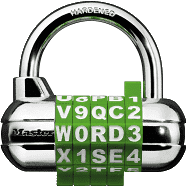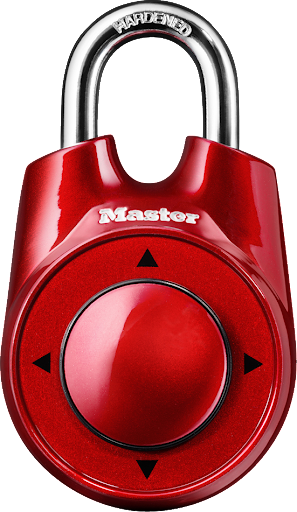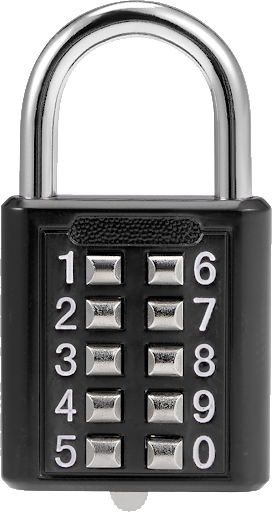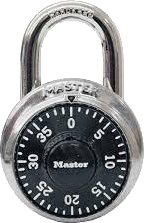Escape Room Tips
We're often asked for tips and tricks to do well in our escape rooms, so we figured we'd put together a list of things we've noticed really tend to set the quickest groups apart.
Whether this is your first escape room, or you'd just like to step up your game, there should be a few useful tips for you below!
Most of these tips will apply to most escape rooms, but they are tailored for ours.
Escape rooms are a real-life, immersive and exhilarating experience. Your group enters a themed room (e.g. Egyptian or Zombie room), and will be given a goal to achieve. You will have 60 minutes to work together to find clues, decipher riddles, and solve puzzles to accomplish your task and "escape" the room. For questions about our establishment, check out our FAQ.
This is one of the most common questions we get from new players. Unfortunately, it's also the hardest to answer.
Some general ideas:
- There are several objects in the room. Do any of them seem related?
- There could be objects or information hidden somewhere. Find it!
- There are probably several locks in the room. Do you need letters or numbers to open them? How many?
- If there's anything to read, read it. Does anything seem important? Does it mention anything in the room? Is there anything unusual about the wording?
- Play, explore, examine, and fiddle. Communicate anything you find with your team.
This is the big one. The best teams aren't just made up of the "best" individuals. Rather, they're the teams that coordinate the best.
Talk To Each Other
Everyone has different knowledge & strengths.
- Explain your thought process and what you are trying to do. Putting it into words can:
- Help you to notice when you’ve made a mistake, or realize what part is actually difficult.
- Give your friend the piece of the puzzle they were missing.
- Make it easier for the GM to give hints ;p
- One person knowing about the key is useless if only others know about the lock.
- You may know the solution, but not have the tools, while someone else may have found the tools, but not know what they are for.
- If you think you’ve figured out something important, even just a piece, make sure everyone listens!
Listen To Each Other
Members of your team will notice things you’ve missed. Even Steve!
- We can’t count the number of times someone has come up with the solution immediately, but were ignored, or were told they were wrong.
- Even if they are wrong, they might have thought of a piece you didn’t.
- Even if it’s wrong, just trying it will free their mind to work on another solution, and someone may learn something about the puzzle in the process!
Try Things
Don’t succumb to analysis paralysis!
- Sometimes just trying the wrong answer is faster than deciding it’s wrong.
- Sometimes an answer you thought was wrong… isn’t.
- Sometimes trying the wrong thing will reveal more information.
You can't play your best if you're distracted.
Use the Washroom Beforehand
We reminded you before we left!
Don't Get Too Drunk
Shouldn’t have to be said… but sometimes it does.
We're proud of our licensed board game café, but you'll have a better chance in the room if you save the adult drinks until after your booking.
Eat & Sleep
Even if it doesn’t feel that way, your brain slows down without rest and calories.
You should never need to use force in our escape rooms, and unless we gave you a tool specifically designed to take the furniture apart... please don't.
Solving puzzles directly isn’t the only essential job!
The Mediator
Some people are good communicators, while others... aren’t.
- Make sure the meeker voices have been heard, and the louder voices have listened.
- When something is found, learned, or solved, make sure everyone knows.
The Organizer
Don’t waste time losing things!
- Make sure you know what has been used, and what hasn’t. Find somewhere to set things aside when you don’t need them anymore. Ideally, not in a heap on top of the thing everyone’s spent the last 20 minutes searching for.
- If some things seem to go together, put them together.
- When someone says “Oh! We need that thing! Where’d it go‽” Say “Right here!”
The Sleuth
There are things hidden everywhere!
|
|
The Re-Reader
Notes are useless if you don’t read them!
- Everyone should know what a clue said. Read it in a strong voice, not just in your head.
- Make sure to read it out in full. Sometimes a clue can be missed in a summary!
- Signs are usually there for a reason, but people don’t “see” them.
- Read it again if you get stuck. It might make more sense with your new information.
Here, Hold This
If you’ve done many roadside repairs, you know a competent 6-year-old can be the difference between getting to Grandma’s on time, or crying while you dig for lug nuts in a poorly lit snowbank.
- Gather up the other pieces of the current puzzle, so they’re ready when needed.
- Point the flashlight at the job at hand.
- Show them the reference while they work.
- Having to look away to set something down or pick it up can derail your thought-process.
The Question
People get stuck in their thought-processes.
- When people are stuck, ask them to explain it. The answer may jump out at them.
- Q: “Have we used this yet?” → A: “Wait, I didn’t know we had that!”
- Q: “Have we solved this yet?” → A: “Oh, I forgot about that one!”
- Q: “Maybe we don’t have everything we need for that; is there something we can solve?”
We have several different kinds of locks. Some of them can be tricky!
Three and Four Digit Number Locks and Word Locks
These locks are pretty standard, but know that some locks have the code along the edge of the lock, while others line up along a line marked on the front face of the lock.
Five Digit Locks
These locks can use any combination of letters, numbers or symbols. The code lines up along the side of the lock that says “Master”.
(The other side is identical, except it doesn’t say Master, and the code will be upside-down.)
These locks have to be lined up very carefully!
| These locks can use any combination of letters, numbers or symbols. The code lines up along the side of the lock that says “Master”. (The other side is identical, except it doesn’t say Master, and the code will be upside-down.) These locks have to be lined up very carefully! |

|
Directional Locks - (1500iD)
 |
These locks go up, down, left, or right. They can have any number of directions in a combination, but our puzzles will always use between 2 and 14 directions.
If you make a mistake, want to try a different code, or you pull down firmly and it doesn’t open, you have to double tap the top shackle before starting to input a new code. |
Push-Button Locks
| These locks come in 8 button and 10 button varieties. In either case, the solution will require exactly half the buttons to be pushed in, while the others are left out. Once the solution is entered, there’s a slider on the bottom, which must be slid to the right. |

|
Classic “High School Locker” Dial Locks
 |
These locks take 3 numbers (usually from 0 to 39). Note that this is a little different from a “3 digit” lock, because each number could be up to two digits.
|
Wow! You made it all the way to the bottom? You must be thorough! You'll do well.
Everything above should apply to the vast majority of escape rooms, but for your diligence, here are a few tips that are less universal, but do apply to all of our rooms. (This also gives us a moment to brag.)
Our staff love escape rooms, and we try to make our customer experience as good as possible. (We ask for customer feedback after almost every booking, and our staff are encouraged to give us ideas for improvements.) There are certain kinds of puzzles we don't like, so you won't find them in our rooms.
All of our puzzles should have a definitive solution, so you won't have to guess
- You won't have to try all 40 possible permutations. The puzzle will give you all the letters/numbers, etc, and a fairly straightforward way to find the order.
- You won't find a list of 26 different numbers to try, nor must you try every four-letter word in a note. If one of those words or numbers is important, a puzzle should tell you which one.
- You won't have to remember obscure details without the ability to reference them later.
- Our intros are meant to set the tone, and explain the guidelines. You don't need to remember your GM's name, nor the colour of their socks.)
- You won't need to remember the order in which you did previous puzzles, nor the starting state of something easily changed.
- You shouldn't need any outside knowledge to solve our puzzles. If you need to know the capital of France, the rules of chess, or the order of the planets, you'll find that information somewhere in the room.
We try not to make anything too tedious. We're trying to test your teamwork, problem solving, lateral thinking, and occasionally dexterity, not your patience
- You will never have to count 376 marbles. (It would be at most 10, and you'd find a a clear indicator about what to count.)
- You won't have to do complex arithmetic in your head. (We'd give you a calculator at least, and indicate when to use it.)
Additionally, we do our best to "sign-post" our puzzles when possible. If two things feel connected, they probably are. If they don't, or it feels like a wild guess, still try it, but don't get hung-up on it.
You won't have to do anything dangerous, or that seems like it might be dangerous
- You won't need to use force, or remove anything mounted to the wall. There's no key hidden under the heavy bench, or behind that mirror on the wall.
- You don't need plug anything into, nor unplug anything from a wall outlet.
- If you need to reach something up high, we'll tell you ahead of time.
- Despite the term "escape room" we won't lock you in. If there is an emergency, there's always a clearly posted exit, and you can just walk out. (We ask that you wait for your GM otherwise.) Instead, all of our rooms have a clear objective that doesn't involve "getting out", such as information or an object you must uncover, or a task you must complete.
If you think you've found an exception, don't hesitate to ask your GM. We'd rather break character for a moment than have you waste time because you were too careful, or worse, risk you hurting yourselves (or the room).
Miscellaneous
- You might find a way to bypass a puzzle without solving it, but we recommend against it. Generally, picking locks, guessing codes, or forcing containers open makes things more difficult for groups, not less. This is because you gain access to too many unrelated clues, making it difficult to keep track of what you should be working on, and the clues for the bypassed puzzle are suddenly (but not obviously) useless. (It also makes it harder for us to give hints.)
- We have a full-time monitor assigned to every room. This means four things:
- Our hints can be subtle and immersive. We try to nudge you in the right direction, rather than denying you your "aha!" moment.
- Our hints come when you need them, and not before. You won't need to ask for hints.
- Our puzzles can be a little harder, and our clues a little better hidden than elsewhere, because if something get's missed, we can help.
- If you are struggling with a lock, or you think something is broken, let us know and we can deal with it quickly. That's not supposed to be part of the experience, and we don't want you to waste your time on it.
If you feel like you're not getting enough hints, someone in your group is probably making progress, or our hints have been so immersive you thought they were part of normal gameplay. If you feel like you're getting a lot of hints, it's not because you're stupid, it's because the puzzles are hard, and you're good at recognizing hints. Most groups get several hints.

